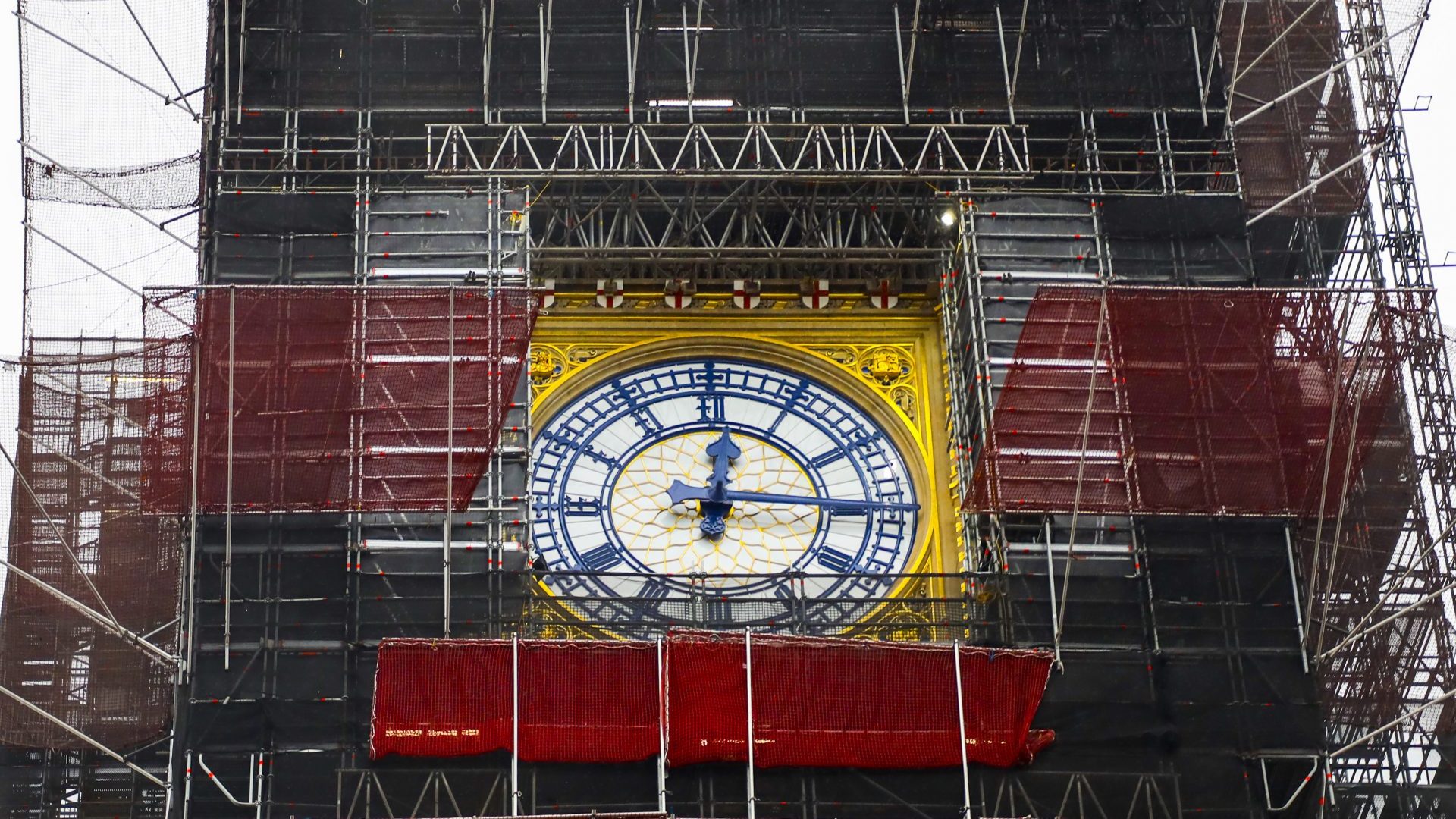Finding problems in our current political system and climate is what’s known in the trade as a “target-rich environment” – throw a rock in Westminster and you’ll hit on a conflict of interest, a case of nepotism, or some other politics-as-usual misery.
What’s less easy to think of tends to be answers – or at least any beyond “vote out the current government and bring in a new one”. But real change needs to last beyond a single change of government – swapping the personalities is just the first step on a long path to real change.
But should we get a government that wants to restore trust in politics and make substantive changes – whether big or small – to how government works, what should those actually be? Here is a collection of policy changes that could be made to change politics – some far easier than others.
No one will like all of them, and some of them are mutually contradictory. But at least they can serve to start a discussion about what could actually work to change how the UK runs its public sector.
Move out of 10 Downing Street
This one should be a no-brainer: it is madness to run a 21st-century government out of a converted terraced house. Many of the country’s top civil servants work out of cramped and overcrowded basements that look nothing like the ornate staterooms just above their heads.
Instead of a strong central government department, we have the centre of government split between an under-resourced No 10 and a Cabinet Office whose priorities and structure change with every government. The prime minister needs a major executive department to coordinate the government, and suitable headquarters for a properly-sized team. Keep No 10 to entertain foreign dignitaries – and perhaps as a residence for the PM, if that’s helpful for security.
Abolish the Treasury
This one might initially sound a bit ridiculous. We do, after all, need something in central government to keep track of the figures. But the Treasury is not necessarily remotely fit for purpose.
In the absence of a strong prime ministerial department, the Treasury is the department that actually runs government. Given that it’s also the department responsible for managing all the spreadsheets, that quickly leaves the UK being run by spreadsheet.
The result is government policy nickel-and-dimes initiatives, saving pennies today at the cost of pounds tomorrow. Government becomes small and risk-averse, ruled by accountancy rather than by either political will or by economic logic. The folly of trying to run a country in such a way shows up in dispiriting decisions with alarming frequency: more than £4bn in dodgy coronavirus loans that everyone predicted would be dodgy gets written off, but a continued uplift to universal credit is ruled out.
Until the Treasury loses its stranglehold on policymaking, the UK will stay in the doldrums.
Stop MPs running their own offices
Westminster is notoriously rife with bullying and sexual harassment – not to mention nepotism, abuse of unpaid internships, unfair salaries and more. Asking 650 people to suddenly and separately manage their own small fiefdoms of staff is asking for trouble, and undermines any kind of accountability structure.
When you are employed by an MP, how can you possibly complain about that MP and continue in your job? The current system is an anachronism, vulnerable to abuse and cronyism.
Political staff should be employed by a centralised employer. MPs would then be able to interview and select their staff from a pre-approved list of qualified candidates, who then have HR and back-office support from a centralised service.
This could have benefits for those who report bullying or sexual harassment – if people could request an automatic transfer to the next MP of their party who has a vacancy at the right level, people may be able to escape abusive work environments without having to abandon their hoped-for political career.
Curb outside work and interests
Whenever someone suggests curbing second jobs, people complain that it will damage the quality of prospective MPs. But that suggests that an MP who earns two to three times as much from a private employer as they do working for the taxpayer is somehow a great candidate for the public – a questionable proposition at best.
The outside earnings limit needn’t be zero: MPs might write the occasional comment article, or want to do a small amount of work for the NHS, or to keep their practising status in law. An upper limit of earnings – some percentage of the salary of MPs – beyond which the rest must be donated to charity or returned to the Treasury might help restore confidence.
Similarly, MPs and ministers should have limits on their shareholdings and other financial interests – to avoid situations such as Jacob Rees-Mogg’s, with a ministerial portfolio that could directly influence his own financial portfolio. Limiting the potential for conflicts of interest doesn’t just help restore trust – it helps avoid future scandals.
Toughen up rules governing public life
Almost the entirety of the setup of rules in British public life is based on the idea that everyone in parliament is an honourable gentleman (far too many of the rules precede the idea that women might have a place in politics). By 2022 this assumption seems generous, to say the least.
As it stands, former ministers and civil servants going into private sector jobs just voluntarily run the appointment past a committee, with the option to either follow or ignore their recommendations. That clearly no longer passes muster: rules on outside jobs and lobbying must be rules with teeth, not voluntary codes.
Similarly, the ministerial code cannot continue with the prime minister as his or her own judge and jury. It needs punching up and given some independent oversight. Any new government that doesn’t make tightening up this code one of its first priorities will be leaving itself open to charges that it wants to continue the bad old ways.
Take a long, hard look at proportional representation
There is a habit on the left of assuming that proportional representation would fix almost every political problem in the country. It would certainly change our politics – seats would reflect vote share more closely, smaller parties would play a bigger role in government, coalitions would be far more common.
There is an assumption that this set-up would favour “progressive” parties, because of current vote shares. This is an assumption we should be very careful about: looking at elections for the European parliament should remind us that under proportional systems, progressive parties very much do not always come out ahead.
Proportional representation would open up space on the right of politics, as well as on its left. The nature of its tendency towards coalition also means more grinding compromises and less decisive government – not necessarily what progressives actually want after 12 years of rightwing rule.
PR also tends to disfavour independently minded candidates in favour of those who vote reliably in line with party leaders – who get to determine the order of who gets elected from their party, depending on vote share. Given we tend to admire independently minded MPs who vote with their conscience more than their party line, this could be a loss.
It may be that people decide we want proportional representation all the same – but we should think quite hard about what problems we are hoping it will solve first.
Stop centralising everything
The UK’s system of government seems to rely on centralising credit and localising blame. After a decade of cuts, councils are more or less institutions designed to sort out emptying bins and running social care – and apologising for the poor service and closures in every other area.
Central government decided to cut local budgets, and then leave councils unable to do anything about that decision, except carry the can. Every other localisation effort has been half-hearted at best: how many people in the UK have heard of their police and crime commissioner? How much power do they really have?
City and regional mayors are similarly largely symbolic: they can be advocates for their areas, but are largely left to act as advocates trying to get money for their area from central government, which continues to hold the purse strings. With this government, that means voters who choose a Conservative mayor get rewarded, and those who don’t by and large get punished.
Central government in the UK is notoriously unwilling to actually hand out money to local or regional government – perhaps unsurprisingly, given financial and corruption crises across local government. But actually giving spending control to regions is vital to spread power and accountability across the UK – even if it would have to come with beefed-up auditors and regulators.
None of these changes is aimed at fixing the country’s problems – and generally, they don’t come from a particular ideological standpoint. Instead, they are aimed at fixing the actual machinery of how government is done in the UK. The idea is that these help to set up government to make better decisions, and to succeed more in what they’re trying to do. That is, at least, a start.




